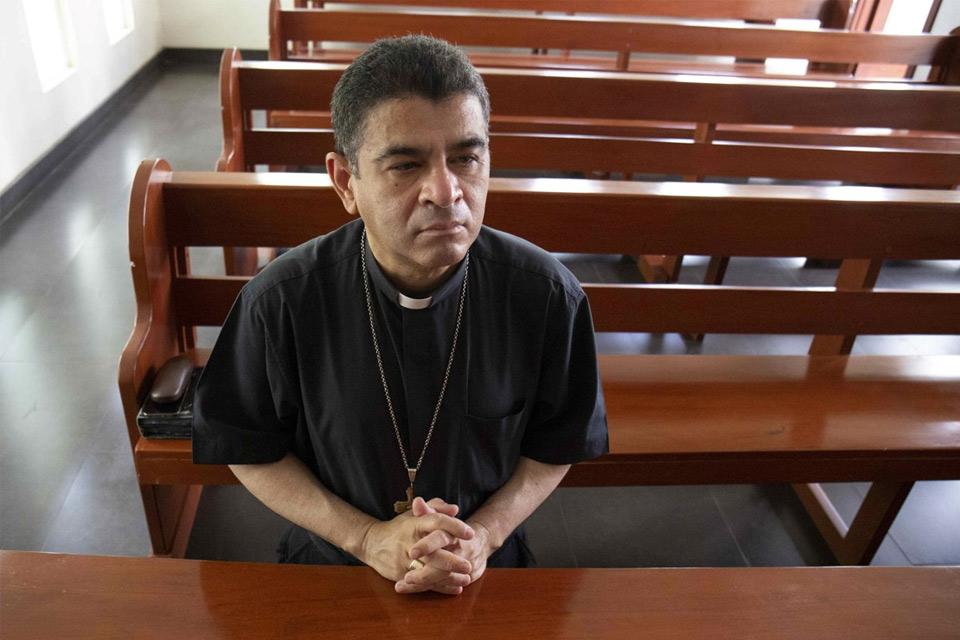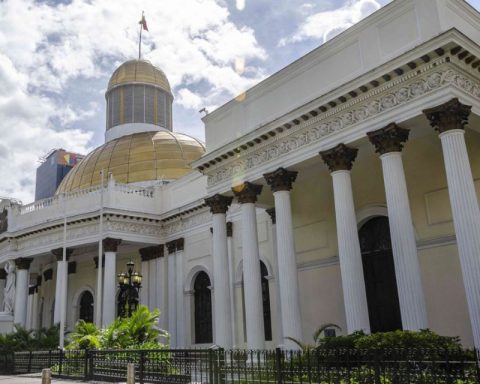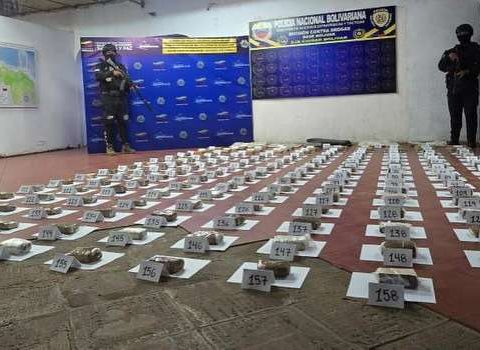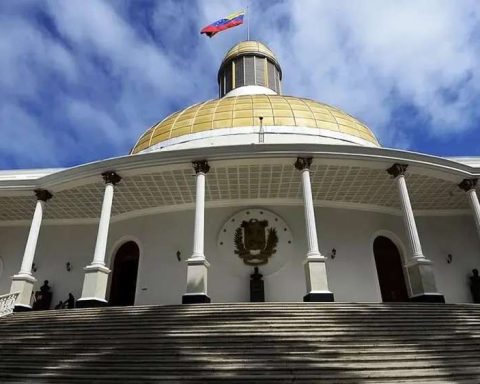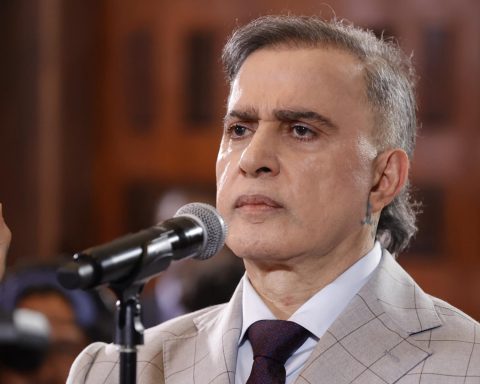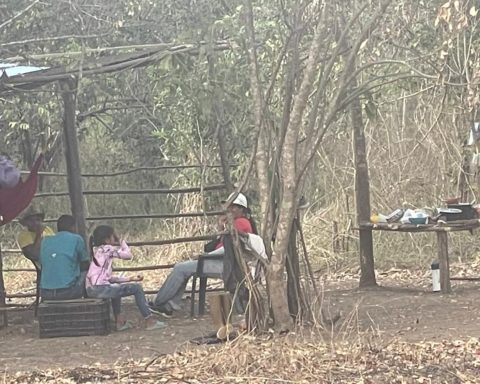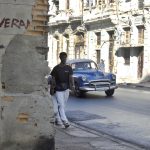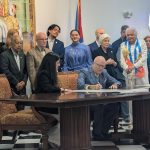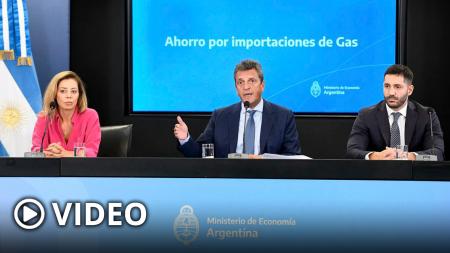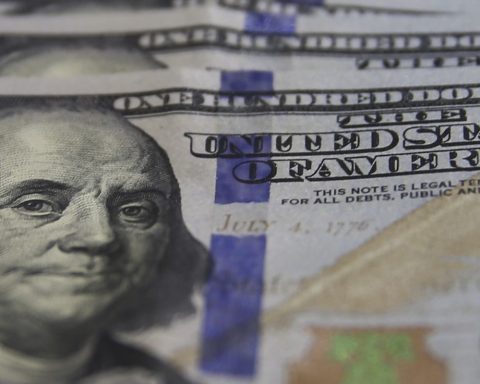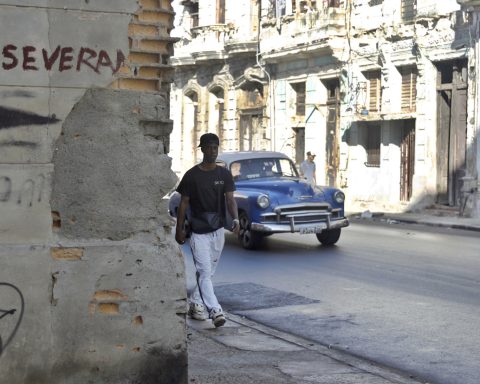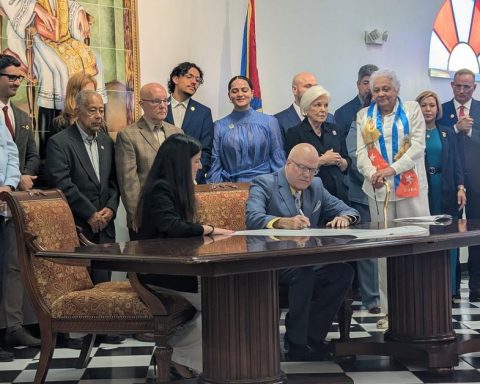Daniel Ortega explained that he could not force Monsignor Rolando Álvarez to board the plane that would transfer 224 Nicaraguans to the United States from Nicaragua that the Government had exiled, because Washington demanded as a condition for receiving the group that they all accept that decision and travel voluntarily. own
The government of Daniel Ortega, president of Nicaragua, sentenced Monsignor Rolando Álvarez to 26 years in prison one day after he denied being part of the group of 222 political prisoners released and later exiled and stripped of Nicaraguan nationality.
Despite the fact that he was not exiled, the Managua Court of Appeals (TAM) applied the same decision to him as to the 222 exiled by stripping him of his nationality, for which he will remain in jail as a stateless person, convicted of alleged “treason against the homeland”. », obstruction of functions, aggravated disobedience to the detriment of Nicaraguan society and dissemination of false news.
Ortega himself clarified, on a national channel, that Álvarez was part of the list of exiled political prisoners, but that the monsignor refused this possibility and was condemned by judicial authorities biased towards Sandinismo.
According to Ortega’s account, Monsignor Álvarez was taken by police officers from his home in Managua to the Air Force. There he would be transferred along with the other political prisoners to the United States, but while he was in line before going up, he refused to proceed and asserted that he had to “discuss it with the bishops.”
For Ortega, since it was a “decision of the Nicaraguan state,” Álvarez was obliged to abide by it. “I do not know what this gentleman (Álvarez) thinks, that in the face of a decision by the Nicaraguan State, he says that he does not abide by, a resolution of a state power that is ordering him to leave the country,” he said.
*Read also: Ortega denies agreement with the US on political prisoners: It is a matter of patriotism
The Nicaraguan president also referred to a second victim of exile who also refused to board the plane. This is Fanor Alejandro Ramos, convicted of treason, drug storage and illegal possession of weapons.
“Surely he was afraid that once he was in the United States, and with that record, they would investigate him and lock him up in prison there and end up in life imprisonment or in the electric chair,” he added.
He explained that he could not force them to go up by force because the agreement they had reached with the United States government, which agreed to receive the group of exiles, consisted of everyone accepting the decision of their own free will.
“He is deranged, but hey, that must already be determined by the judicial authorities and the medical authorities who will also have to attend to him, because now that he arrived at the model, he arrived that he was a madman,” he added.
222 exiled from Nicaragua
Nicaragua released 222 political prisoners early on Thursday, February 9, and exiled them to the United States. The information was disseminated through a video posted by the former Nicaraguan ambassador to the Organization of American States (OAS), Arturo McFields, on his Twitter account. Later, the Department of State of the United States would confirm the information.
Those released were in different prisons in the country, including people who were detained in the Directorate of Judicial Assistance (DAJ), known as “the new Chipote.” Among the group are the presidential candidates Cristiana and Juan Sebastián Chamorro, the businessman Pedro Joaquín Chamorro, the peasant leader Medardo Mairena, the human rights defender Ana María Vijil or the former guerrilla commander Dora María Téllez.
Hours after their release, their nationalities were stripped. The National Assembly of Nicaragua approved a reform of article 21 of the Political Constitution, to empower the courts to strip the nationality of “traitors to the homeland.”
The next day after the exile, the Minister of Foreign Relations of Spain, José Manuel Albares, informed that the Spanish government was willing to grant Spanish nationality to all the exiles.
“The offer is already, to put it in some way, in force (…) The procedure that will be used is that of granting Spanish nationality by naturalization letter, to prevent them from being stateless (…) And it is a government decision that would take very little time,” he explained.
While the future of the group is clarified, the United States receives them with a humanitarian visa and work permit for two years. From North America, they assure that they will continue to be Nicaraguans, regardless of what a court may rule in favor of the Ortega government.
This is how Max Jérez, president of the Nicaraguan University Alliance (AUN), expressed it after being released after 19 months in prison. «Nicaragua is carried in the heart. We are and will always be Nicaraguans, wherever we are,” he said in an interview with SuchWhich from washington.
* Also read: The exiles speak: “We are and will always be Nicaraguans, wherever we are”
Post Views: 281
